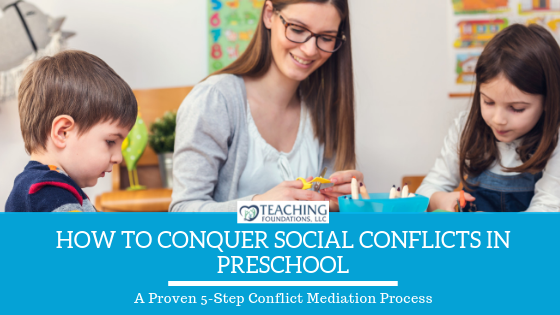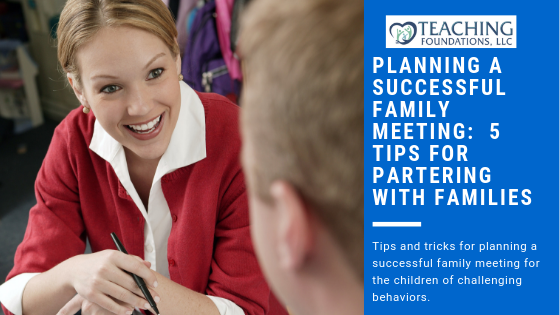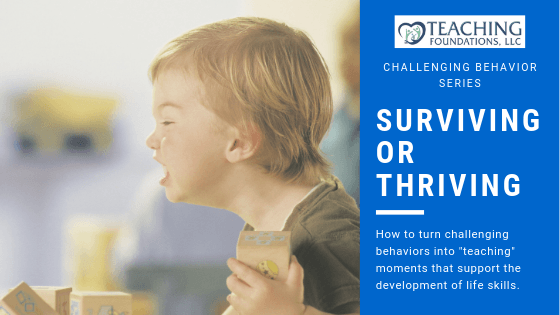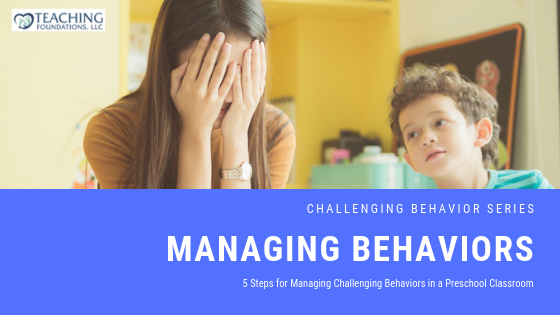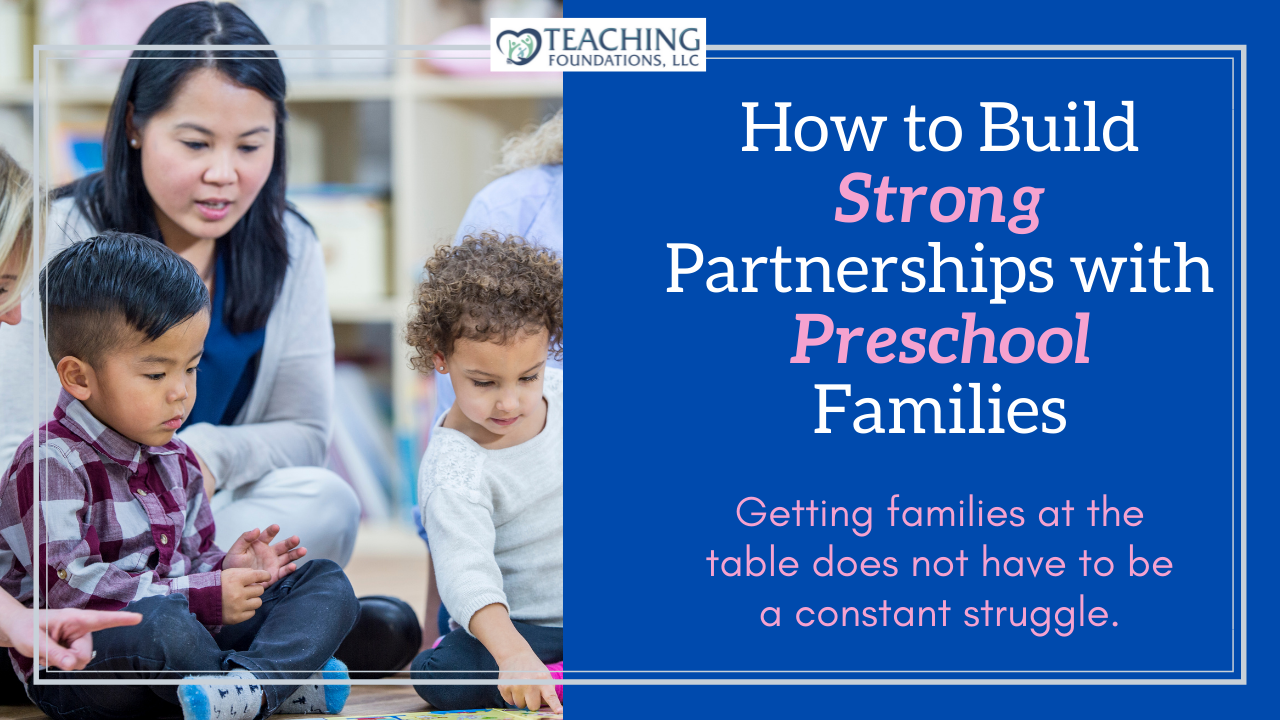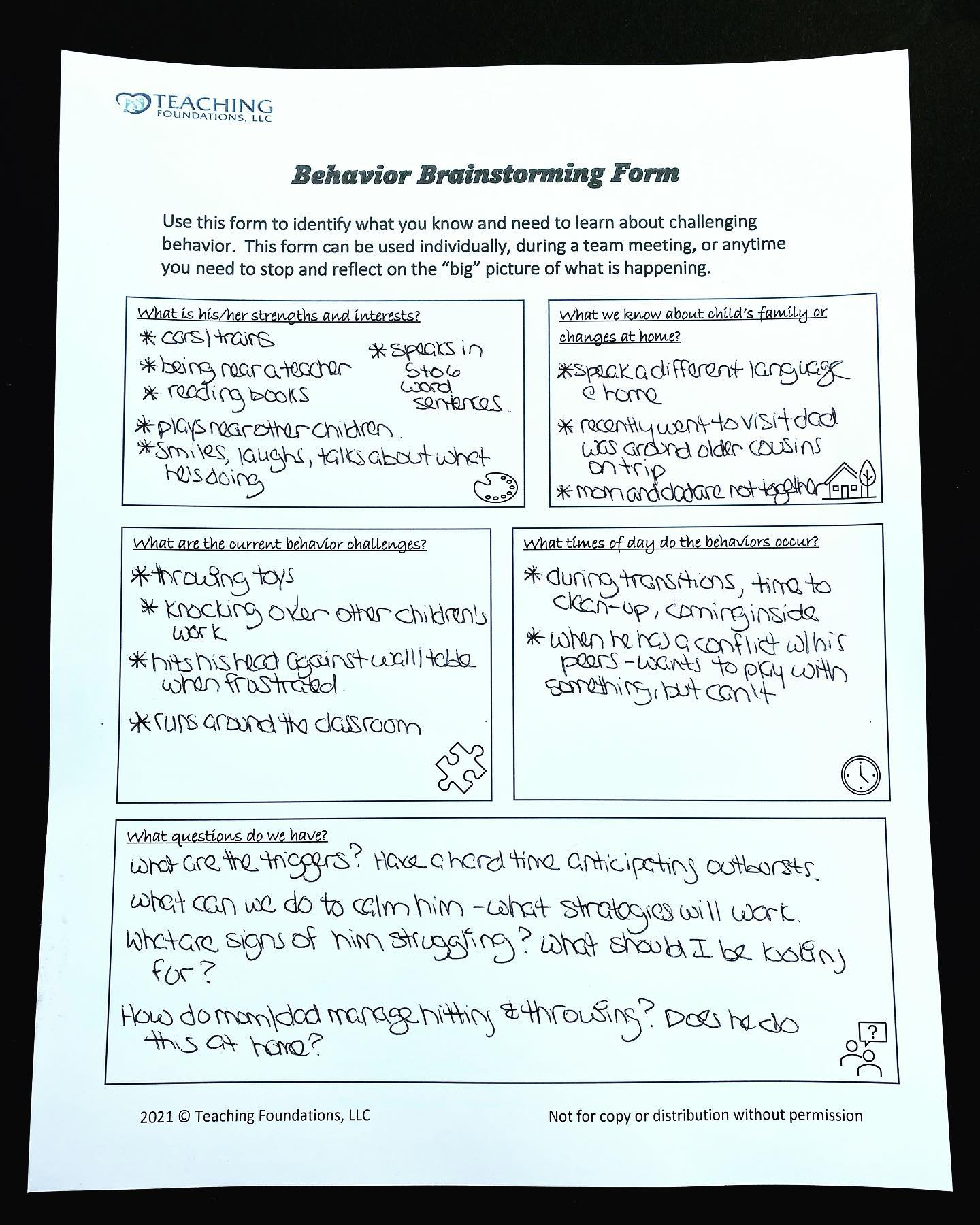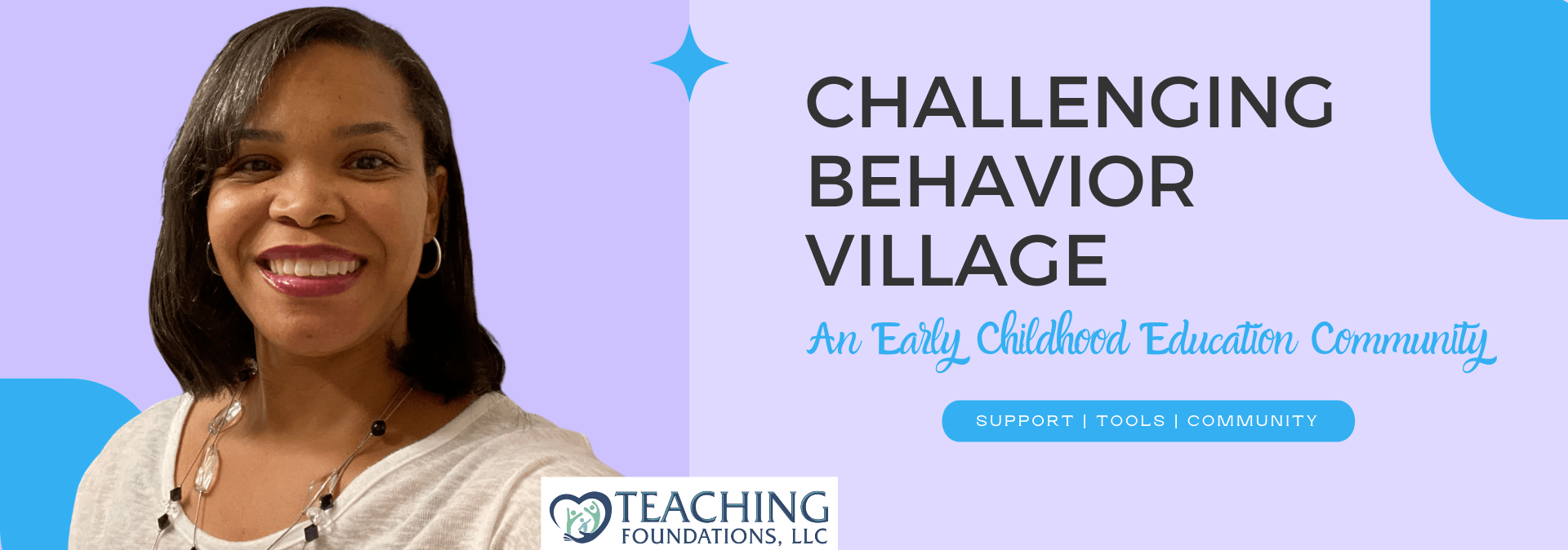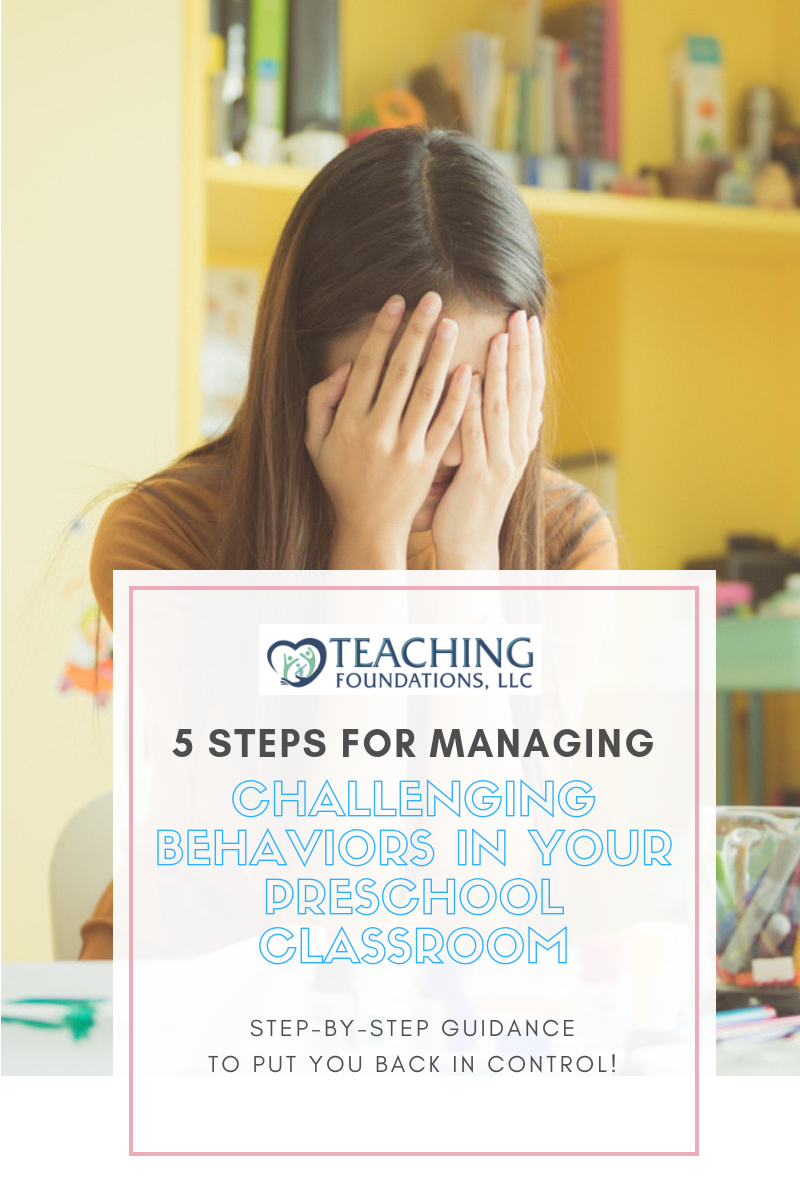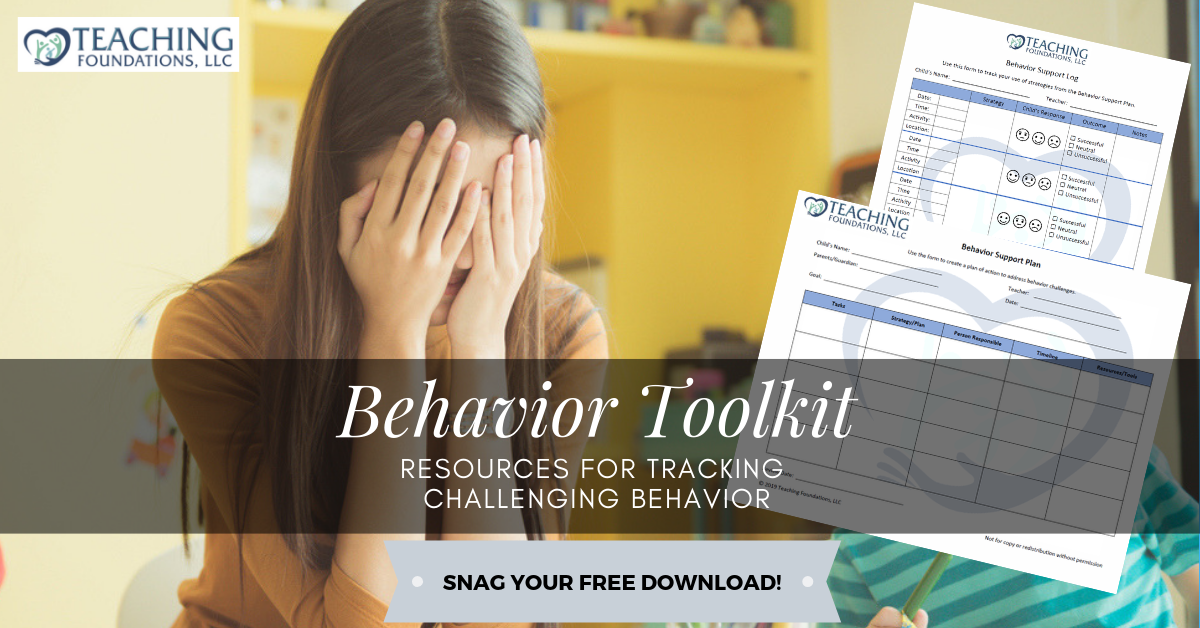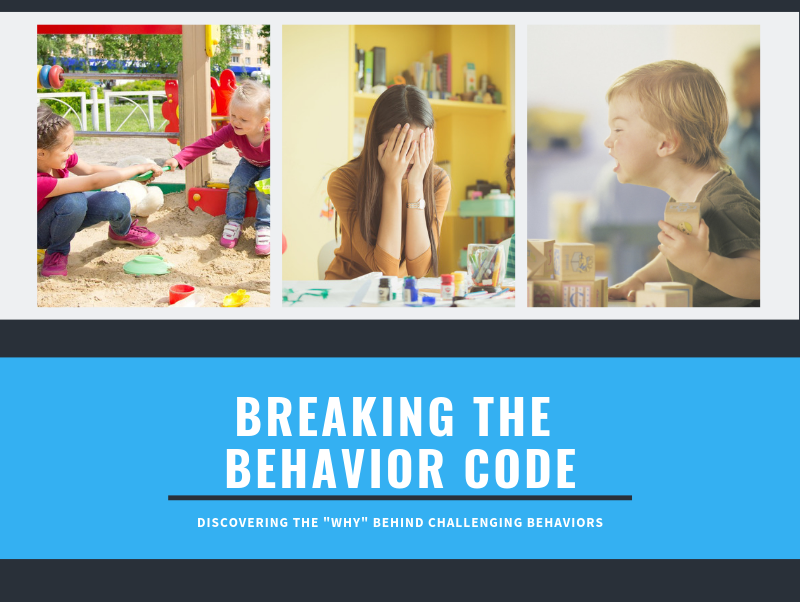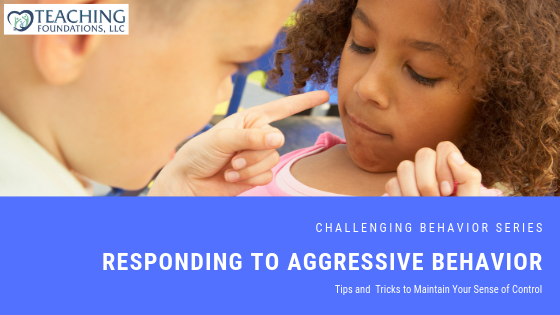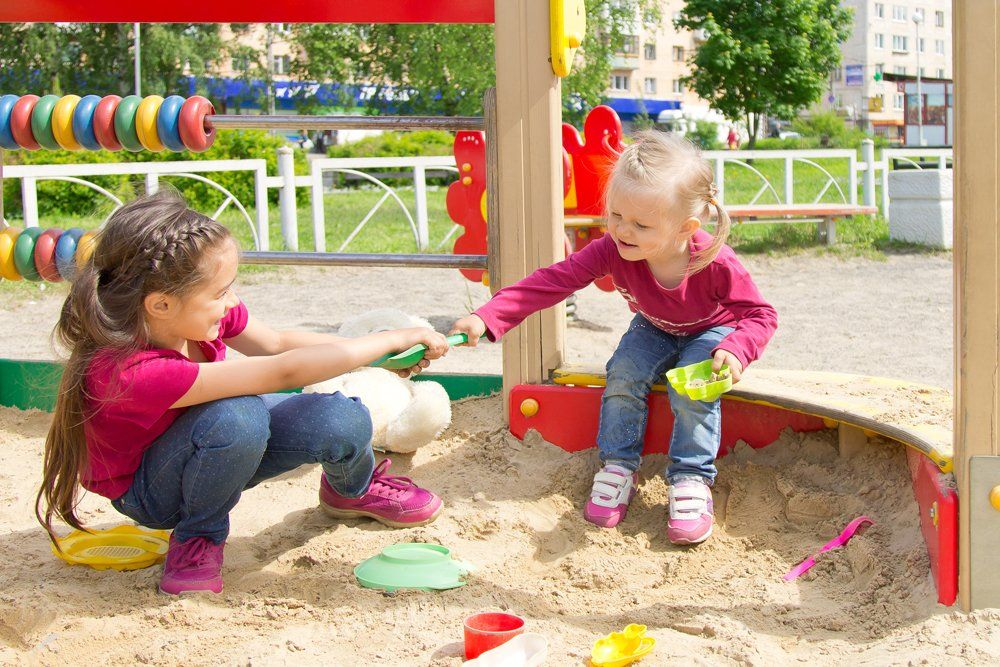How to Build Strong Partnerships with Preschool Families
A question I am frequently asked when delivering training on challenging behaviors is “How do I get the families involved?” It seems that one of the biggest challenges we face when working with children with challenging behaviors is getting on the same page with families. In my own experience, I found myself talking with a family for months to only have them jump on board after their child struggled through a kindergarten visit at the child’s new school. We were able to make more progress in the two months of us working together than I did in the seven months without buy-in from the family. This experience showed me why it’s important to get parents on board from the beginning. The question is “How?”
In this post, I am sharing how I have built strong partnerships with the families in my program. This is advice that is sure to bring down the walls between you and the families with whom you are working.
What is the family's role in addressing challenging behaviors?
Addressing challenging behaviors requires a team approach. Everyone needs to be involved and working together towards the same goals. While everyone on the team needs to do their part, we all have different roles we play in the process. My view of working with families to address challenging behaviors can be summed up in this quote:
“The family knows the child. The teacher knows child development.”
The families' role in addressing challenging behaviors is sharing with us information about their child. What does their child do at home? How do they address similar behaviors at home? Are there any developmental concerns or delays? What strategies have other programs or they themselves tried?
I use the information parents share with me to tailor any supports to the individual strengths and needs of the child. If families have strategies that work, I will add them to the behavior support plan. If the families or another program has tried a strategy I’m suggesting and it didn’t work, I will adapt or adjust the plan accordingly.
The important thing to remember is that families often do not have the training and knowledge about child development that we have. They may not have a toolbox of strategies to draw from when addressing behavior challenges. They may be at a loss to know what to do to help their child and are looking to us for support and understanding. This is a big reason why families shut down when they perceive they are being blamed for their child's behavior. They may just be thinking, "I don't know what to do either?"
Families are more likely to partner with us when we are looking to them to give us the information we do not have. Additionally, we look to families to try techniques and strategies at home (with modeling and coaching from us). We can use what we know about child development to plan a best course of action based on the information shared with us from families.
Notice that I did not leave it to families to “fix” the problem, but rather saw the families as resources of information with unique knowledge about the child. Families are motivated to learn ways to support their child and they will be their child’s advocate even after the child’s time in our program comes to an end.
Why do families resist partnering with us?
It is important for us to know reasons why families resist partnering with us. This is the biggest complaint of teachers with whom I have worked. They feel like the parents are not willing to work with them to address the challenges in the classroom. I have found families to be resistant for one of these following reasons:
- They see the child as a reflection of themselves. If they're child is struggling, what does that say about them or their parenting?
- All parents have big dreams for their child. Admitting their child has challenges can sometimes tarnish those big dreams.
- Parents may have struggled with these same challenges as a child. They're worried about their child facing the same stigma's and bullying they may have faced growing up.
I know you may be wondering... "Why this is important?"
When partnering with families, you have to be aware of the "elephant in the room". What is the unspoken concerns that need to be addressed in order for the parent to be able to trust that you have their child's best interests in mind. When you start your partnership by addressing the parents' worries, you open the space for the establishment of trust that is critical for the relationship to progress.
This is one of the biggest reasons I communicate with families by asking questions, listening to their responses, and communicating my plans of action. I do not focus on labels - ADHD, Austism, etc. - but rather talk about specific actions and moments and what I see that their child needs to learn. By keeping the conversation focused on learning and growth, I stay away from assigning blame and labeling their child. This allows us to become a team working to help their child learn the skills they need to be successful later in life.
What can I do to build strong partnerships with families?
One of the biggest ways I build strong partnerships with families is by establishing two way communication with families. I make sure to share highlights from each child’s day with families at pick up time (Sarah made this funny comment today. It was time to clean up and she said "Clean up, wiggle wiggle wooo). I know it’s important for me to share the funny, exciting, and casual moments of the day because it communicates to the families that I am getting to know their “whole” child - both their strengths and their struggles. If I have to share something I’m concerned about with families, I will say, “Today, I noticed…..” and then state specifically what I saw the child do. Then, I ask, “What are your thoughts about that?” or “Have you seen this happen at home?” By focusing on specific events/actions, I avoid labeling the child or making assumptions. This communicates genuine curiosity to the family and establishes the trust needed for open back-and-forth communication.
I use communication journals with families who are resistant to partnering or whose schedules make it difficult for me to talk with them in-person. Communication journals can be created with a simple marble notebook. In the communication journal, I share highlights from the child's day by gluing in pictures of the child playing with captions of what the child learned that day. The family can take the communication journal home and share highlights from the weekend. Parents appreciate the journal and it goes a long way toward establishing the needed trust for future conversations about behavior challenges.
I want to point out that when establishing a partnership with families, I focus on building a relationship first. The most effective way to build a relationship is by showing the parent you "see" all of their child's moments. Once a parent knows that you care about their child and are invested in their child's growth and learning, teaming up to address struggles will be much easier.
I’ve tried all of this and I’m still struggling! Now what?
Patience! Trust is not established in one conversation, on one day, or from one interaction. It takes hundreds of interactions to establish the trust needed for partnering to address challenging behaviors. The good news is that a strong partnership can survive bumps in the road. This means creating a foundation of trust needs to be the focus of any parent partnership that is hanging on by the threads. Ensure you are communicating the daily highlights and listening to the family's attempts to communicate with you. Sometimes, simply starting over from the beginning is the best way to reset a relationship where trust has been broken.
Here’s one fact that keeps me going…..
“Parents need to hear the same concern HUNDREDS of times to CONSIDER it may be true.”
Barb O'Neill (Transform Challenging Behaviors)
This tells me to keep sharing and keep asking questions. By continuing to do the things that establish strong partnerships, you will be communicating you care and are reliable to the family. Through your persistence, you show the family I am here “no matter what”.
Don't be afraid to set up a meeting - in the meeting create a plan of action and schedule time to follow-up on the child's progress. I frequently use parent conferences as times to do this. It’s an already planned meeting that doesn’t carry the pressure of other scheduled meetings. The family is already coming to discuss the child's progress and learning goals.
Biggest thing.....keep going! Every little thing helps. Impact is measured over a lifetime. Just know you are laying the foundation for the building blocks of success later in life.
So, what are you waiting for? Download my Behavior Brainstorming form now and use it to identify what questions you need to ask families, what questions you still have about the behavior, and how you will start building trust with the families in your classroom. Watch our Partnering with Families You Tube video to see how I use this form to brainstorm before parent meetings.
Have questions about partnering with families in your program? Leave a comment in the chat box below. I would love to chat with you and share ideas!
Do you have a process for addressing challenging behaviors in your early childhood program? Our live, instructor-led virtual training, Breaking the Behavior Code: Discovering the "Why" Behind Challenging Behaviors will teach you our 5-step process. Sessions running in September and October.
